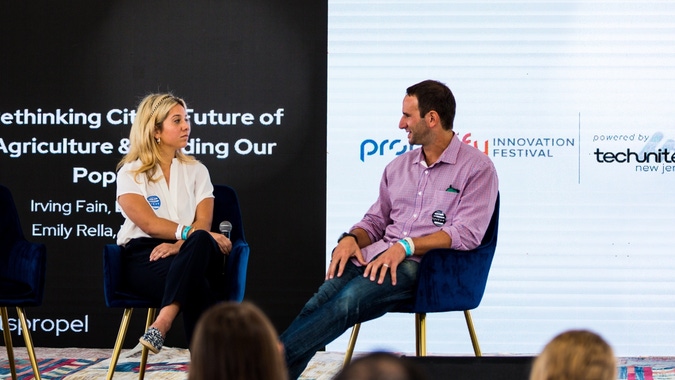Opinions expressed by Entrepreneur contributors are their own.
As the narrative around climate change shifts from the responsibility of the individual to the collective power of businesses to effect meaningful change, it’s time to begin a dialogue around how your small business can make a visible difference in an authentic and purposeful way. Start-ups and Small Businesses have an agile advantage when it comes to implementing these features in the workplace, whether it’s ditching plastic water bottles, changing out the lights or sponsoring tree planting in deforested lands, but how do you we’ve this into the company values and create an energized culture around it?

Propelify Technology Festival
We asked industry experts to share their most effective tips for small businesses to address climate change.
“I would encourage companies to develop a path to net zero by first developing a carbon inventory of the company. The first step is to understand your direct and indirect carbon emissions. An easy way to start is to analyze the electricity consumption that the company uses in its offices and buildings. This can be translated into carbon emissions using the EPA greenhouse gas emission calculations.”
— Faith Taylor VP, Global Sustainability Officer, Kyndryl Global Corporate Affairs
Related: Attend Propelify Technology Festival for free with code EntrepreneurPropels
“Leading with a community-first mindset is one of the most important aspects of making an impact on climate change and sustainability practices. At Wonder, our vision is not only to reduce our own impact, but also to make an expanding positive impact across industries and communities. Businesses operating with Net-Zero in mind have a natural limit to the change they can make; they can only reduce their emissions. By instead focusing on systems that make an outward impact, there is no limit to the transformation you can drive through collective efforts. To get there, we structured sustainability practices around five key pillars – food sourcing, food waste, packaging, healthy buildings, and an emissions-neutral fleet – all major contributors to climate change.” — Ross Bergman, Senior Manager of Sustainability at Wonder
Related: Why You Need to Build Sustainability Into Your Business Strategy
“As we work toward the clean energy transition, it is imperative to understand that we are all in this together. Regardless of what your day job is, as an established entrepreneur, innovator or just starting out in your career, there is a role for you to play in tackling climate change. We all need to ask ourselves – are my choices leading to using the least amount of energy possible? Among options that are affordable and reliable, is this the cleanest option available? Do you spend as much time evaluating energy options – lighting, heating, cooling for your home or office – as you do shopping for a new car or looking for a new binge-worthy show? If the answer is no, it’s time to increase your energy awareness.” — Ralph Izzo, Executive Chair, PSEG
If you are interested in learning more, you can attend Propelify Technology Festival for free with code: EntrepreneurPropels